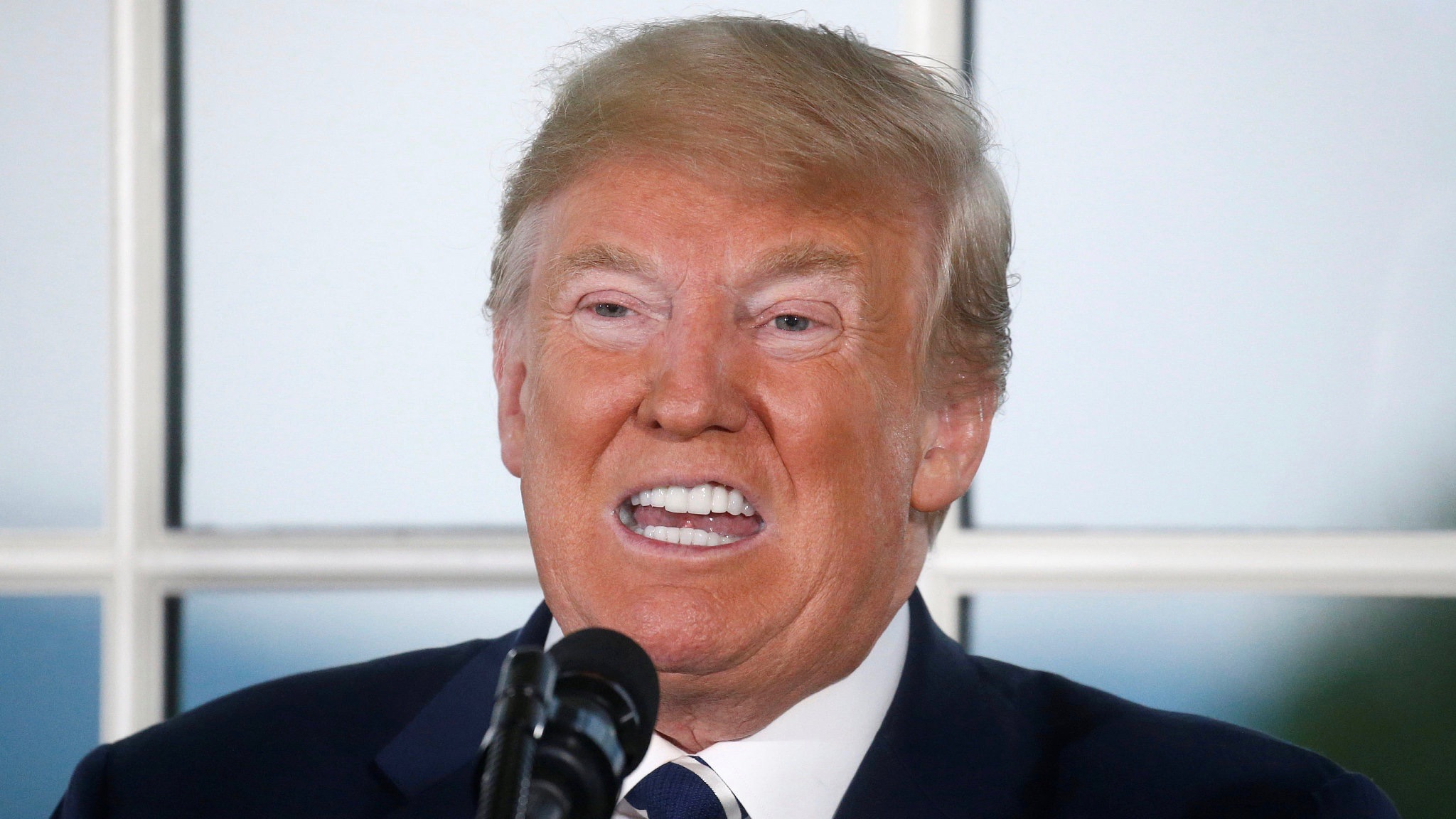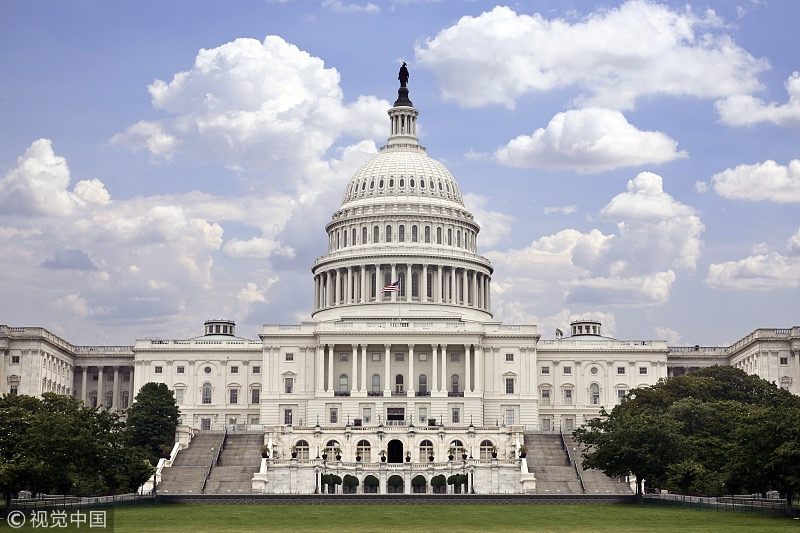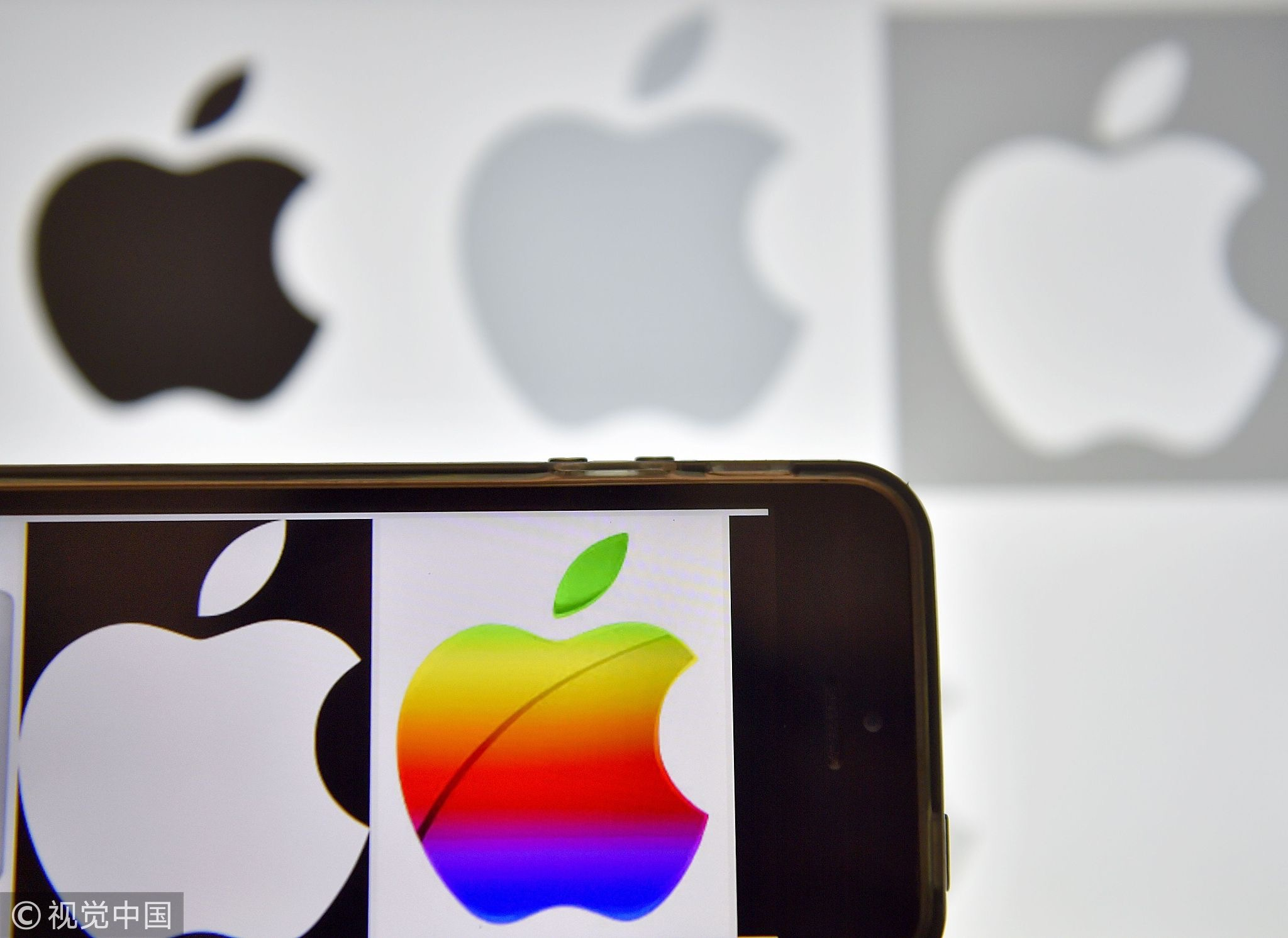
Opinions
12:33, 10-Aug-2018
Opinion: With internal divergences emerging, where is Trump headed?
Updated
11:45, 13-Aug-2018
By Wang Huiyao

Editor’s note: Wang Huiyao is the founder and president of the Center for China and Globalization (CCG). The article is translated from an article originally published on the Chinese-language Reference News. It reflects the author’s views, and not necessarily those of CGTN.
The US-China trade dispute seems to have escalated since July 6, and the US has been “increasing its stakes” by first announcing the imposition of additional 25-percent tariffs on 34 billion US dollars’ worth of Chinese products, and then announcing a further 10-percent increase in tariffs on 200 billion US dollars in Chinese imports. The Trump administration is reported to be considering tariffs on more Chinese goods.
The aggressive attitude of the US appears to show the world its confidence in winning the trade war. However, there are divergent views within the country: the US Congress, the Trump administration, the American business community and the affected states have all voiced their dissatisfaction with the trade conflict and their opposition against Donald Trump’s radical trade policies.
Divisions within the US government
Members of the US Congress are already anxious about Trump’s unpopular protectionist trade policies. In recent days, Republican and Democratic Congress members have frequently voiced their opposition in hopes of reducing the negative impact of Trump’s trade protectionism.
On July 11, the Senate voted 88-11 to constrain Trump’s presidential authority to use national security as justification for taxing foreign goods, which unusually secured bipartisan support. Though non-binding, this effort highlighted the concern of US lawmakers about Trump’s radical trade policies.
It is not just members of Congress who disagree with Trump’s trade policies. Even within Trump’s negotiating team, there is disagreement over whether to launch a trade war.
Wilbur Ross, the Commerce Secretary and a China hand, was believed to be dovish and was openly criticized by Trump for being soft on China. Terry Branstad, currently the US ambassador to China, is also seen as dovish, mainly because he comes from a state that exports large quantities of agricultural products to China and he has maintained friendly relations with the Chinese business community and government. Steven Mnuchin, Secretary of the Treasury who worked at Goldman Sachs, is opposed to labeling China as a currency manipulator and is therefore seen as a centrist.
What’s interesting is that in a statement issued after the US-China trade talks, the White House stressed that the US position was the “consensus” of the negotiating team, while in fact it led to more speculation about the differences within the US team during the talks. Trump has yet to set more strategies on his trade policy toward China because of differing views within the administration, according to Dr. Derek Scissors of American Enterprise Institute.

US Capitol /VCG Photo
US Capitol /VCG Photo
Strong opposition from the US business community
Opposition to Trump’s protectionist policies in the US business community is particularly strong because vital business interests are at stake. Not long ago, 25 well-known US retailers, including Wal-Mart, Macy’s and Best Buy, sent a letter to Trump, urging him not to impose tariffs on products imported from China so as not to harm the interests of American consumers, especially the working class, and widen the wealth gap.
Forty-five trade associations representing the interests of the US retail, technology, agriculture and other consumer goods industries also said that tariffs would increase the costs of US manufacturing, disrupt the existing supply chain, and reduce the competitiveness of US manufacturing exports, thus affecting employment in the US.
In May, when the Commerce Department launched a Section 232 investigation into imported automobiles and automobile parts, hundreds of American workers employed by foreign automakers demonstrated on Capitol Hill, and about 150 lawmakers from both sides of Congress issued a joint letter opposing the car tariffs.
Not only that, American academics have also taken action. Before the trade war broke out, 1,140 American economists, including 14 Nobel laureates, jointly wrote to Trump urging the president not to repeat the mistakes that had led to the Great Depression.
The US-China Business Council said in a statement that it agreed with the Trump administration that the status of technology transfer and protection of intellectual property rights in China do need to be taken seriously, but that US companies would like to see solutions to these problems rather than unilateral tariffs that are likely to do more significant damage to US economic interests.

Logos of US multinational technology company Apple in Vertou, western France, December 28, 2016 /VCG Photo
Logos of US multinational technology company Apple in Vertou, western France, December 28, 2016 /VCG Photo
Affected states seeking to fend for themselves
Governments of the affected states in the US and lawmakers representing them are worried about their own interests being damaged by Trump’s trade policy. Thanks to their relative independence, the state governments are taking steps to engage China.
On July 11, the same day the US Trade Representative released a tariff list of Chinese imports worth 200 billion US dollars, a Chicago delegation led by Mayor Rahm Emanuel visited China and signed a five-year plan to ensure that proposed investments in Chicago by Chinese enterprises will go ahead as planned. Mr. Emanuel also said in public that he hoped to boost economic and trade cooperation with China.
In Illinois, there are not only multinational companies such as Boeing, Caterpillar, McDonald’s and Abbott, but also more than 50 Chinese enterprises, including China National Cereals, Oils and Foodstuffs Corporation, Bank of China, Hainan Airlines, Fuyao Glass and Wanxiang Group.
Many US states resent Trump’s trade war with China. Michigan (where General Motors, Ford and Chrysler are headquartered), Ohio (where Procter & Gamble and American Electric are headquartered) and California (where Apple and Disney are headquartered) have all criticized Trump’s radical trade policies.
According to a survey conducted by the China General Chamber of Commerce-USA, Chinese investments in the US have created more than 200,000 jobs in Ohio, Indiana, Pennsylvania, Michigan, California and other states. On July 19, 22 governors attended the annual meeting of the National Governors Association of the US, during which they were actively engaged in discussions on how to cope with the trade war and strengthen economic and trade ties with China.

Walmart store in Landover, Maryland, December 31, 2014 /VCG Photo
Walmart store in Landover, Maryland, December 31, 2014 /VCG Photo
Consensus against trade war can be built up
The US-China trade war will have no winners and even cause serious disruption to the global economy. While Trump has taken tough protectionist measures, not everyone in the US is in favor of his policies. To minimize the negative consequences of a trade war, consensus against it can be built up to work with those who oppose the war in the US to turn things around.
First, strengthen the role of Sino-US economic and trade cooperation as a bedrock of bilateral ties and promote consensus among US multinational companies and other interest groups.
American multinational companies have important influence on American politics. By the end of 2017, the US had invested 82.5 billion US dollars and set up 68,000 enterprises in China. The Chinese market has become an important source of growth and profits for US enterprises.
In turn, China can try to create a better environment for foreign investments, continue attracting US multinational companies to invest in China, consolidate the intertwining Sino-US economic and trade relations, and strengthen the role of Sino-US economic and trade cooperation as a bedrock of bilateral ties.
China can enhance communication with the US government through American multinational companies, trade associations, think tanks, social organizations and other entities. Furthermore, it can also get in touch with US multinational companies hurt by the trade war, to know their losses, build consensus with them and feed their opinions back to the US decision-makers, so as to resolve conundrums in Sino-US economic and trade relations and get both sides back on the track of dialogue and negotiation.
Second, strengthen provincial/state cooperation in various fields, and set up a Sino-US provincial/state government infrastructure cooperation fund.
American states and cities have a high degree of decision-making power on their own economic affairs, and have maintained close economic exchanges with China, which will be a strong supporter of positive interaction between China and the US and a firm instrument for stabilizing bilateral relations. China can encourage its provinces and cities to strengthen cooperation with their US counterparts, hold annual Sino-US governors’/mayors’ summits, establish platforms and mechanisms for cooperation, and set up a Sino-US provincial/state government infrastructure cooperation fund.
The Chinese side should fully recognize the similarities and differences in the logic of political operation between the two countries, and make good use of them. In the context of Trump’s tax cuts and the quantitative easing tapering policy adopted by the Federal Reserve in the US, the need for investments, particularly those from China, will be more pressing for US state governments.
(Cover photo: US President Donald Trump speaks at a dinner with business leaders at Trump National Golf Club in Bedminster, New Jersey, August 7, 2018. /VCG Photo)

SITEMAP
Copyright © 2018 CGTN. Beijing ICP prepared NO.16065310-3
Copyright © 2018 CGTN. Beijing ICP prepared NO.16065310-3